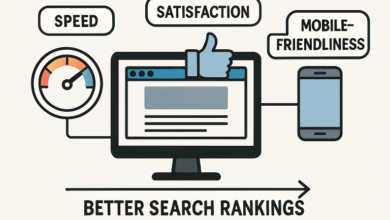Ombudsmänner: Advocates for Fairness and Justice

Ombudsmänner are the unsung heroes of fairness and justice. They stand as advocates for individuals, bridging the gap between power and those who feel powerless. In a world where disputes can escalate quickly, having someone in your corner to ensure your voice is heard makes all the difference. Whether it’s navigating complex bureaucracies or addressing corporate grievances, these professionals play a crucial role in upholding rights and resolving conflicts.
As we dive deeper into this fascinating topic, we’ll explore what exactly an ombudsman does, their rich history, various types that exist today, and some remarkable success stories that highlight their impact on society. Join us on this journey to understand why ombudsmänner are vital champions of equity in our communities!
The Role of an Ombudsman
The role of an ombudsman is pivotal in ensuring fairness and justice. They serve as impartial mediators between individuals and organizations, addressing grievances that often go unheard.
An ombudsman listens carefully to concerns, providing a safe space for complaints. Their ability to investigate issues fosters transparency within institutions.
They don’t just resolve conflicts; they advocate for systemic changes. By identifying patterns in complaints, ombudsmän can suggest improvements that benefit everyone involved.
Confidentiality is a cornerstone of their work. This trust encourages individuals to speak up without fear of retaliation.
In many cases, they also educate the public about rights and processes. Knowledge empowers people to navigate complex systems effectively.
The presence of an ombudsman enhances accountability across various sectors while promoting ethical practices and responsiveness.
History of Ombudsmen and their Evolution
The concept of ombudsmen dates back to Sweden in the early 19th century. The first official ombudsman was appointed in 1809, tasked with overseeing government actions and ensuring citizen rights. This innovative role aimed to bridge the gap between the public and state authorities.
As democracies expanded globally, so did the idea of an ombudsman. Countries recognized their potential for enhancing transparency and accountability within governmental structures. By the mid-20th century, various nations adopted similar models tailored to their unique needs.
Corporate and nonprofit sectors also embraced this model over time. Organizations implemented ombudspersons to address employee grievances or client complaints effectively. This evolution reflects a growing commitment to fairness across multiple arenas—beyond just government oversight, shaping how institutions interact with individuals today.
Types of Ombudsmen (Government, Corporate, Non-profit)
Ombudsmen serve various sectors, each with distinct functions. Government ombudsmen focus on public administration. They address complaints from citizens about government actions and ensure accountability.
Corporate ombudsmen play a crucial role in businesses. They handle employee grievances and promote fair treatment within the workplace. Their presence often helps improve company culture by fostering open communication.
Non-profit organizations also benefit from dedicated ombudsmen. These individuals advocate for stakeholders, ensuring that programs run ethically and effectively while addressing concerns of service users or employees.
Each type of ombudsman adapts to its unique environment but maintains a core mission: enhancing fairness and transparency across diverse systems.
Examples of Successful Ombudsman Programs
Successful ombudsman programs can be found across various sectors, showcasing their effectiveness in addressing grievances and promoting fairness.
In Sweden, the Parliamentary Ombudsman plays a crucial role in ensuring government accountability. This program investigates complaints against public authorities and has been pivotal in upholding citizens’ rights.
Corporate ombudsmen have also made significant impacts. Companies like Boeing employ internal ombudsmen to resolve employee disputes confidentially. These initiatives foster trust and transparency within the organization.
Non-profit organizations often establish ombudsman roles as well. The American Red Cross features an independent office dedicated to handling complaints related to service delivery, enhancing its commitment to those it serves.
These examples illustrate how diverse applications of ombudsmanship empower individuals while holding institutions accountable for their actions. Each program reflects a dedication to fairness that resonates with communities worldwide.
Challenges Faced by Ombudsmen
Ombudsmen play a crucial role in advocating for fairness, yet they face significant challenges. One major hurdle is the lack of awareness about their functions. Many people remain unaware that ombudsmen exist or how they can help resolve disputes.
Another challenge is limited resources. Often, these advocates operate with small teams and budgets, which constrains their ability to address all complaints effectively. The sheer volume of cases can lead to backlogs, hindering timely resolutions.
Political pressure also complicates matters. Ombudsmen must navigate complex relationships within governmental or corporate structures while maintaining independence and impartiality.
There’s the ever-present issue of public trust. If individuals don’t believe an ombudsman can act fairly or transparently, they may choose not to engage with the process at all. This skepticism poses a persistent obstacle for effective advocacy and justice promotion.
How to Become an Ombudsman
Becoming an ombudsman requires a blend of education, skills, and passion for advocacy. A bachelor’s degree in fields such as law, public administration, or social sciences is often essential. Many pursue advanced degrees to deepen their understanding of organizational dynamics.
Practical experience matters greatly. Working in roles that involve conflict resolution or customer service can provide valuable insights into the needs of individuals seeking assistance.
Communication skills are crucial; you must articulate complex issues clearly and empathetically. Strong analytical abilities will help you evaluate complaints effectively.
Networking within relevant sectors can open doors to opportunities. Joining professional associations dedicated to ombudsmanship can enhance your credentials and connect you with seasoned professionals.
The path may vary depending on the specific type of ombudsman role one seeks—government, corporate, or non-profit—but dedication and commitment remain constant across all avenues.
Conclusion: The Importance of Ombudsmen in Promoting Fairness
Ombudsmänner play a crucial role in creating a fair and just society. They act as impartial advocates who ensure that individuals have a voice, especially when navigating complex systems. By addressing grievances, investigating complaints, and recommending solutions, these professionals promote transparency and accountability.
Their presence helps to build trust between the public and institutions, whether they are governmental bodies or corporate entities. The effectiveness of an ombudsman can significantly improve how organizations handle disputes and foster a culture of fairness.
As society continues to evolve, so does the need for effective ombudspersons. Their ability to mediate conflicts while upholding ethical standards is more critical than ever. Embracing their work not only enhances justice but also empowers communities by ensuring everyone’s concerns are heard.
The advocacy provided by ombudsmänner is vital in promoting equity across various sectors. With their support, individuals can navigate challenges with confidence knowing there’s someone dedicated to championing their rights.



